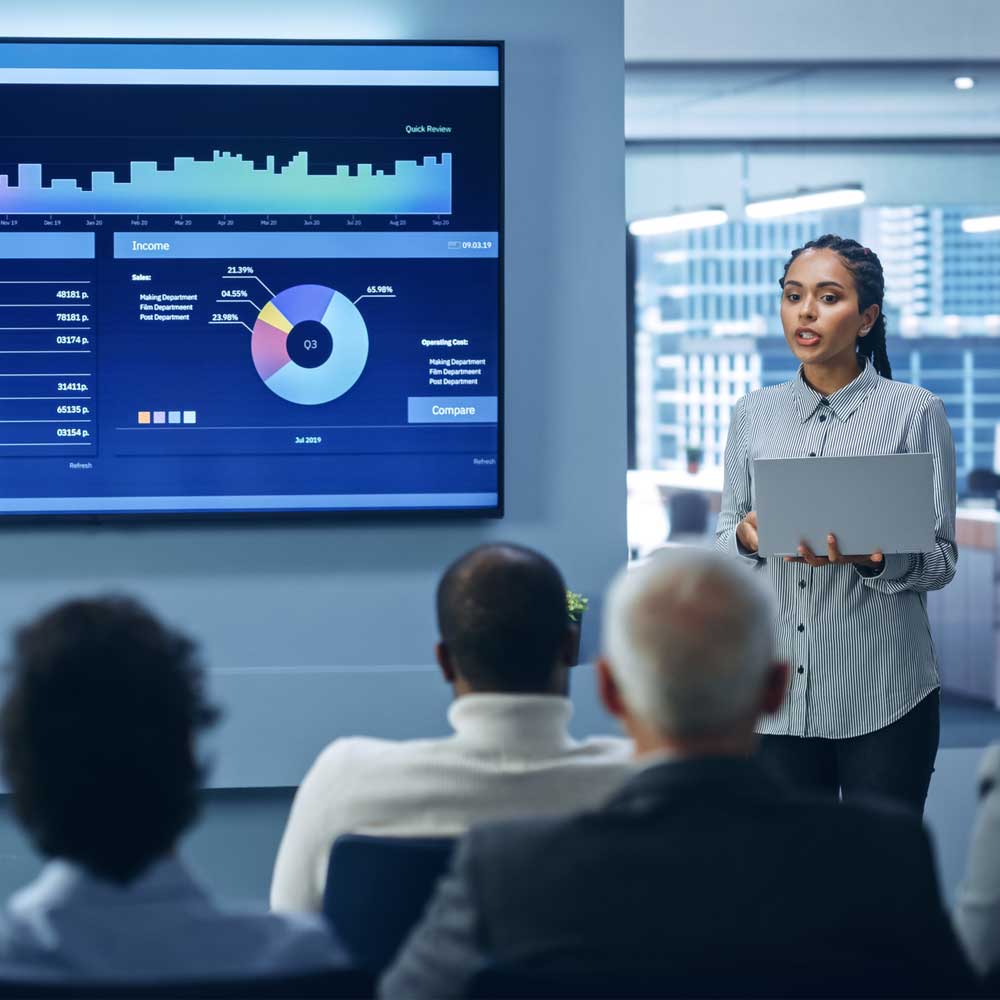Creating a Request for Proposal (RFP) for business travel can be complicated..
Done right, it grants you access to excellent suppliers, unlocks better cost savings, and results in smoother travel experiences for you and your travellers. Done poorly, you’re more likely to receive inadequate responses and ultimately end up with a TMC that isn’t the right fit.
In this article, we give our top tips for putting together an RFP from internal alignment and building a shortlist to preparing the document and presenting it with confidence.

1. Start with Internal Alignment
Before diving into the details of your travel RFP, it’s essential to get your organisation aligned on what you truly need. That starts with gathering insights from the people who will be most affected by the programme, from frequent travellers to travel bookers across departments. By involving stakeholders early, you not only uncover current frustrations and wish-list features but also build consensus around your key objectives, whether that’s cutting costs, improving traveller satisfaction, or advancing sustainability goals.
Top Tips
- Identify all stakeholders who will be affected by or use travel services (e.g. travel bookers or frequent travellers). Involve them early.
- Conduct internal interviews or workshops to understand pain points, priorities, and “wish-list” items (e.g. better reporting, mobile tool, faster support, clearer invoicing).
- Agree on goals: What outcomes are you looking for? Lower cost, better traveller experience, improved duty of care, sustainability, better compliance, etc.
2. Define Your Needs and Wants
Once you’ve gathered input from stakeholders, the next step is to turn those insights into a clear set of goals for your travel programme. This is where you move beyond general expectations and define exactly what success looks like. Are you aiming to cut overall spend, or is traveller wellbeing and satisfaction a bigger priority?
Top Tips
- Establish the scope of services needed. Think about booking tools, policy enforcement, traveller support, duty of care, reporting, etc.
- Define service levels expectations. Do you value fast response times, Always On support, or clearly defined escalation procedures?
- Are you seeking any added value from your travel programme? What extras or creative solutions can a TMC offer, e.g. sustainability programs or traveller wellbeing tools.
- What are your technology requirements? Do you need a mobile app, custom integrations (e.g. your HR/expense systems), or an easy-to-use single sign-on environment like Gray Dawes’ PORTAL platform.


3. Build a Shortlist Carefully
With your requirements clearly defined, the next step is to identify which suppliers are worth inviting to respond. Casting the net too wide can overwhelm both you and potential partners, while a narrow focus risks missing out on strong contenders. Building a well-considered shortlist helps strike the right balance between ensuring you’re only engaging with TMCs that have the capability, experience, and resources to meet your needs, while also giving you a fair comparison of different approaches and service models.
Top Tips
- Research credible TMCs or travel suppliers in your region or with relevant international reach. Use trade organisations, referrals, or previous experience.
- Evaluate their track record via case studies, client testimonials, and, if possible, word of mouth from other companies.
- Don’t just go with size. Sometimes smaller or more specialised suppliers can offer more agility or better customer service. For example, Gray Dawes Sports, as sports travel experts, will be more knowledgeable about the specific travel needs of a professional football team than a generic business travel TMC.
An Insider’s Perspective on Travel RFPs
We sat down with our very own Kelly Hills, our Global Bid Manager, to tell us all about her day-to-day managing RFPs and her opinions on what makes the business travel world tick.

4. Build the RFP Document Structure
Make the RFP easy to follow so TMCs can respond clearly and you can compare responses fairly. Here’s a typical structure:
- Introduction and executive summary. Introduce what you want, the company, background, and purpose.
- Your organisation and policies. Outline your current travel policy, duty of care and sustainability targets.
- A list of the scope of all the travel services you need and require, including technology (online booking tools, mobile apps), and support (Always On availability, robust traveller tracking).
- Outline a desired implementation plan, including a timeline, current responsibilities, and any training required.
- Establish pricing and fees, cost-saving measures, and payment terms.
- Establish deadlines for questions, submissions, any presentations or demos, and a potential go-live date.
5. Establish an Evaluation Method
Once the proposals start coming in, it’s crucial to have a fair and transparent system in place for reviewing them. Without a structured approach, it’s easy for bias to creep in or for teams to focus too heavily on one factor (often cost) while overlooking other critical elements like service quality or cultural fit. Establishing clear evaluation criteria and weightings upfront ensures every TMC is measured consistently, and that your final decision reflects the full range of priorities that matter to your organisation.
Top Tips
- Define an evaluation matrix. Share the weighting breakdown e.g. cost 20-30%, technology 15-20%, service 15%, cultural fit, etc.
- Alternatively, use a standardised scoring system e.g. 5 points = TMC provides detailed, relevant examples and demonstrates proven capability, 3 points = Supplier addresses the requirement but lacks depth or proof etc.
- Include qualitative as well as quantitative measures (e.g. how well a supplier understands your needs, culture, and values from. human perspective).


6. Organise Presentations & Demos
Written proposals can tell you a lot, but they don’t always reveal the full picture. Inviting shortlisted suppliers to present gives you the opportunity to go beyond the documents and see how they think, communicate, and engage in real time. These sessions are invaluable for clarifying details, testing their ability to respond under pressure, and ensuring their approach aligns with your organisation’s culture and expectations.
Top Tips
- When you invite shortlisted suppliers to present, ask clarifying questions, assess their communication style, and see how they respond under pressure.
- Provide an agenda in advance so you know the TMC will cover key topics you have the most interest in.
- Make sure to include key decision-makers from your side so everyone’s opinion and buy-in is taken into account.
You’re now one step closer to writing a successful travel RFP
A well-structured travel RFP is your chance to set the foundation for a successful, long-term partnership with the right TMC. By aligning stakeholders early, defining clear goals, building a thoughtful shortlist, and applying a transparent evaluation process, you’ll be perfectly placed to make an informed decision that supports both your travellers and your organisation’s wider objectives.
And remember, the process doesn’t end with selecting someone – strong implementation, ongoing evaluation, and open communication are what turns an RFP win into lasting value.
Going to RFP?
Get in touch with Gray Dawes Travel today to see how we can guide you through the process and ensure you secure the best possible partner for your business travel programme.
Related Articles
How to Build a Better Travel Policy in 2026
As business travel continues to evolve, travel policies must keep pace with new expectations and challenges. Learn how to build a smarter, more flexible travel policy for 2026 – one that balances cost control, compliance, sustainability goals, and a better traveller experience.
London: A Business Traveller’s Guide
Are you planning on travelling to London for work? From the skyscrapers of Canary Wharf to the bustling high-street shops of Oxford Street, there’s no shortage of opportunities for corporate travellers. In this city guide, we help you navigate London’s unique business ecosystem, share practical tips for getting around, and highlight our top 3 things to see or do to make your trip unforgettable.
Creating a Multi-Generational Travel Programme That Works
Arguably for the first time ever, corporate travel programmes must cater to four distinct generations. From Baby Boomers, who remember the burgeoning business travel scene of the sixties and seventies, to Gen Z employees booking their first-ever work trips, every generation has a unique perspective on travel. In this article, we take a look at how to build a multi-generational travel programme that is cost-effective and tailored to the broadly different needs of those born across the decades.
LET’S TALK
Fill in the form below and we’ll get back to you as soon as we can.


